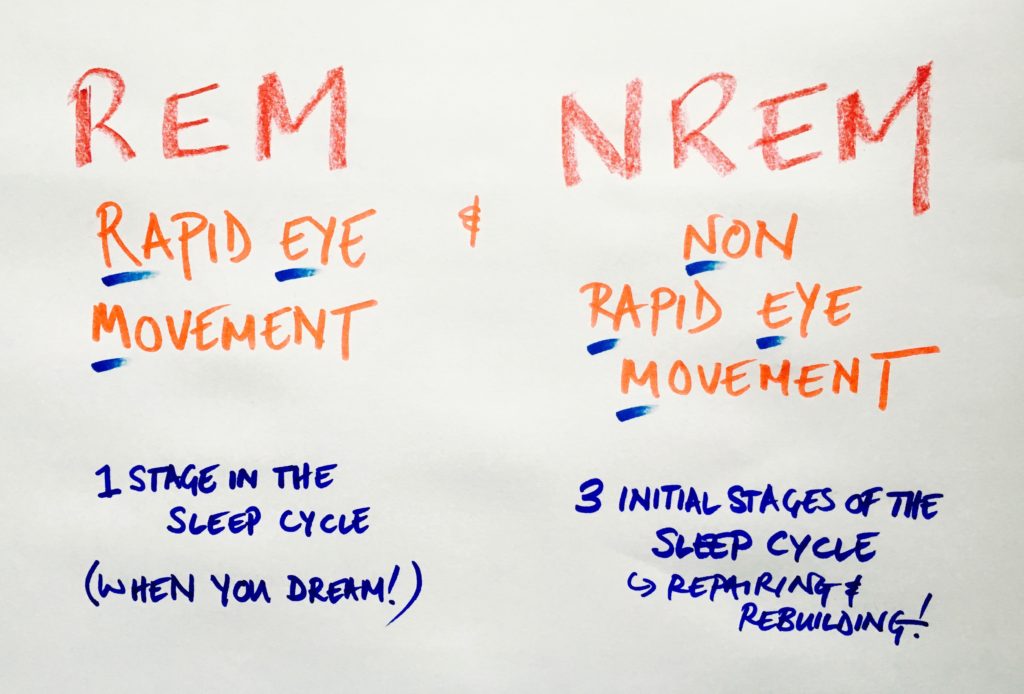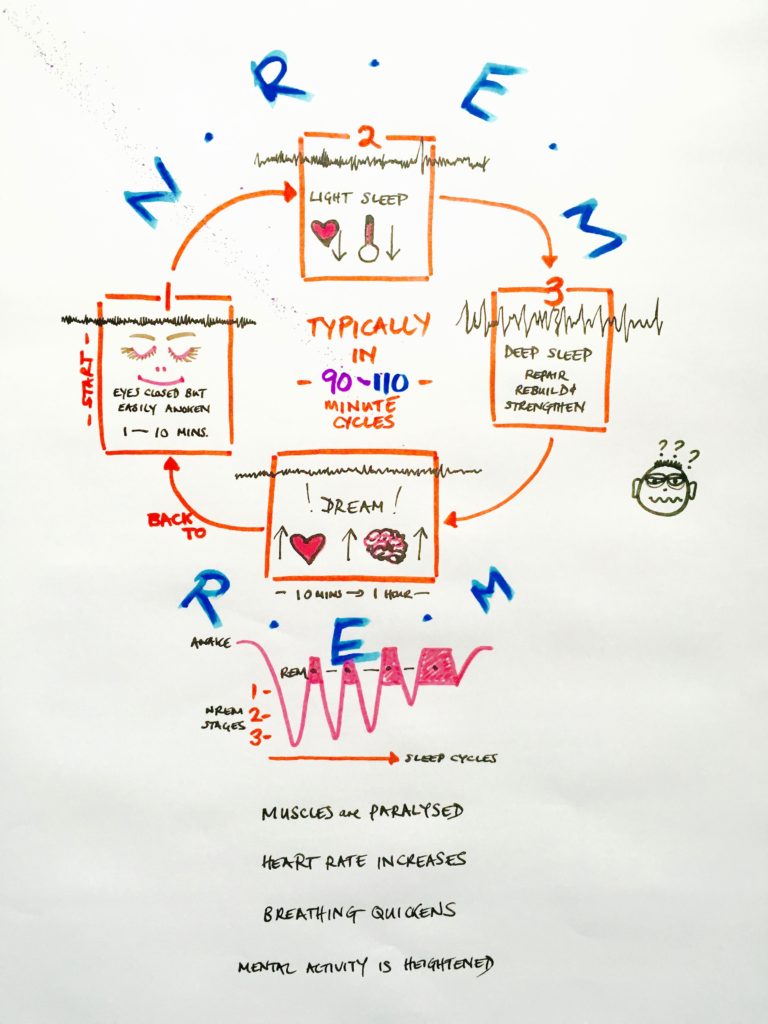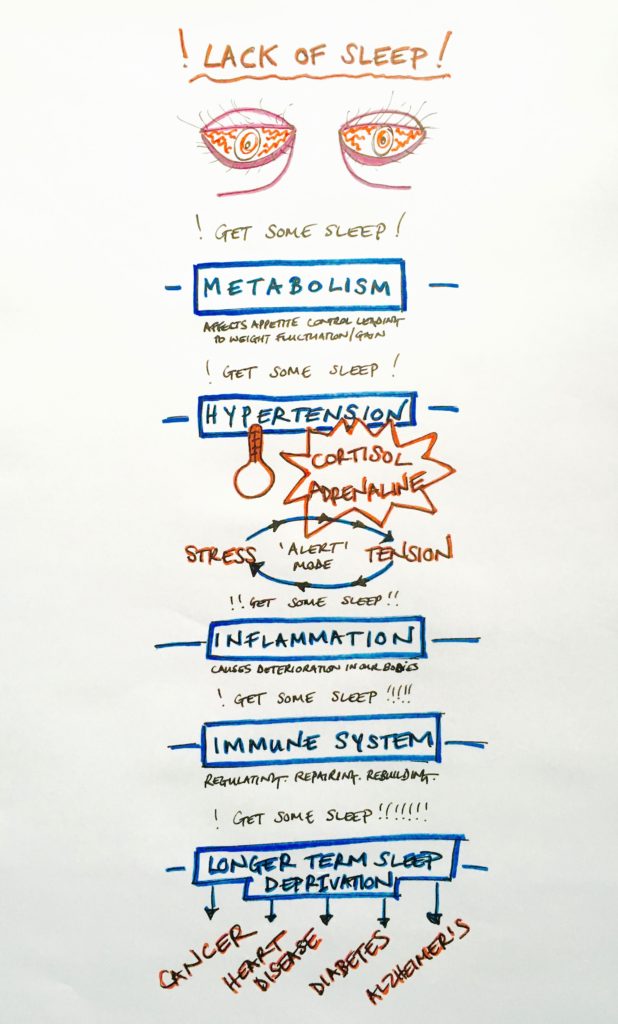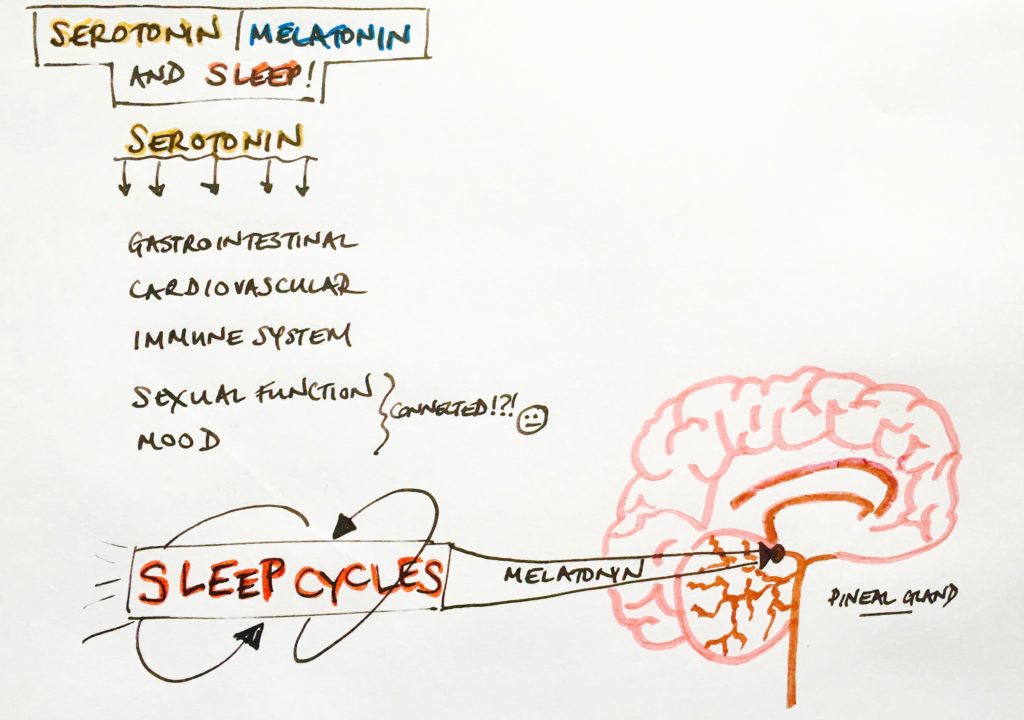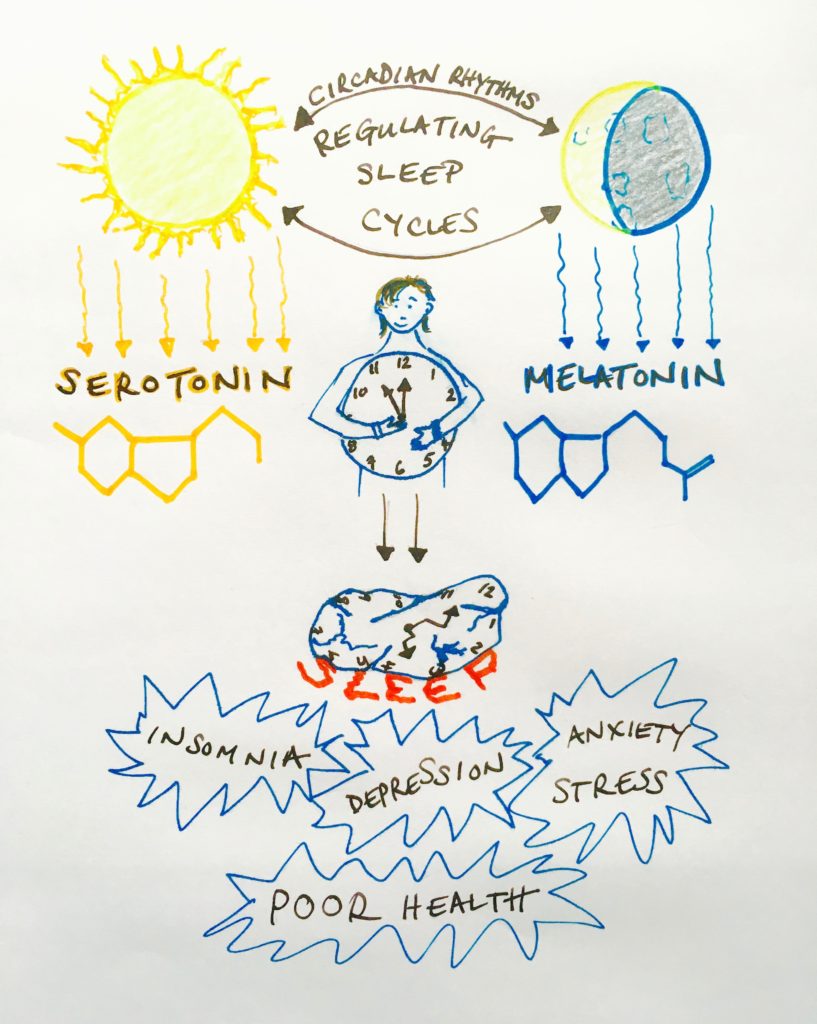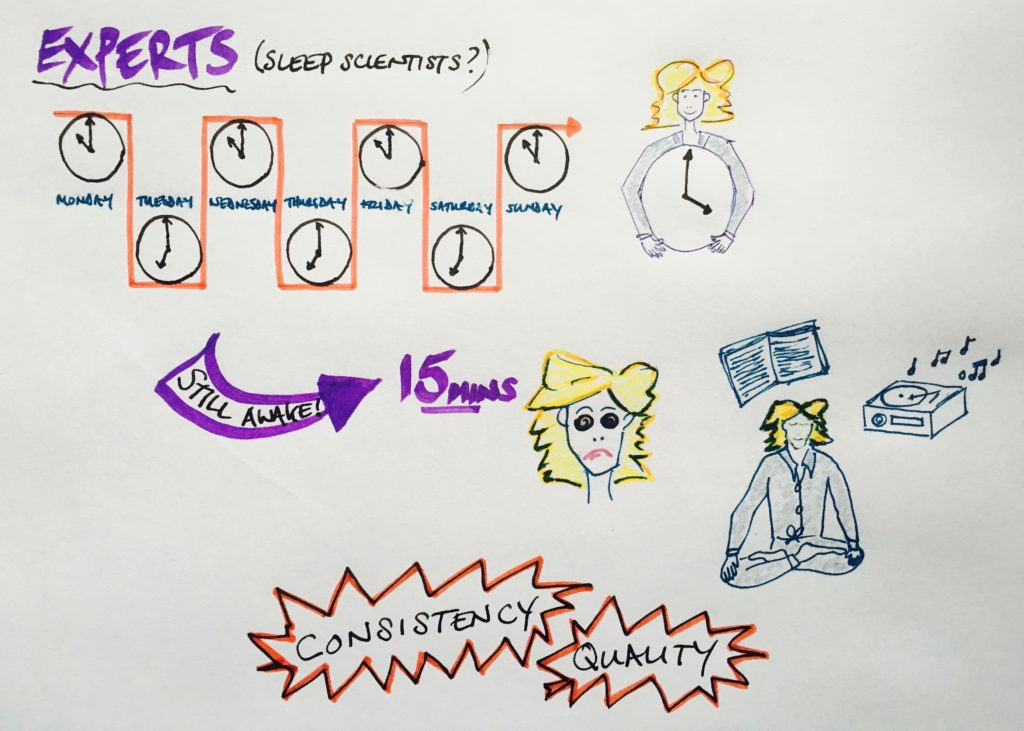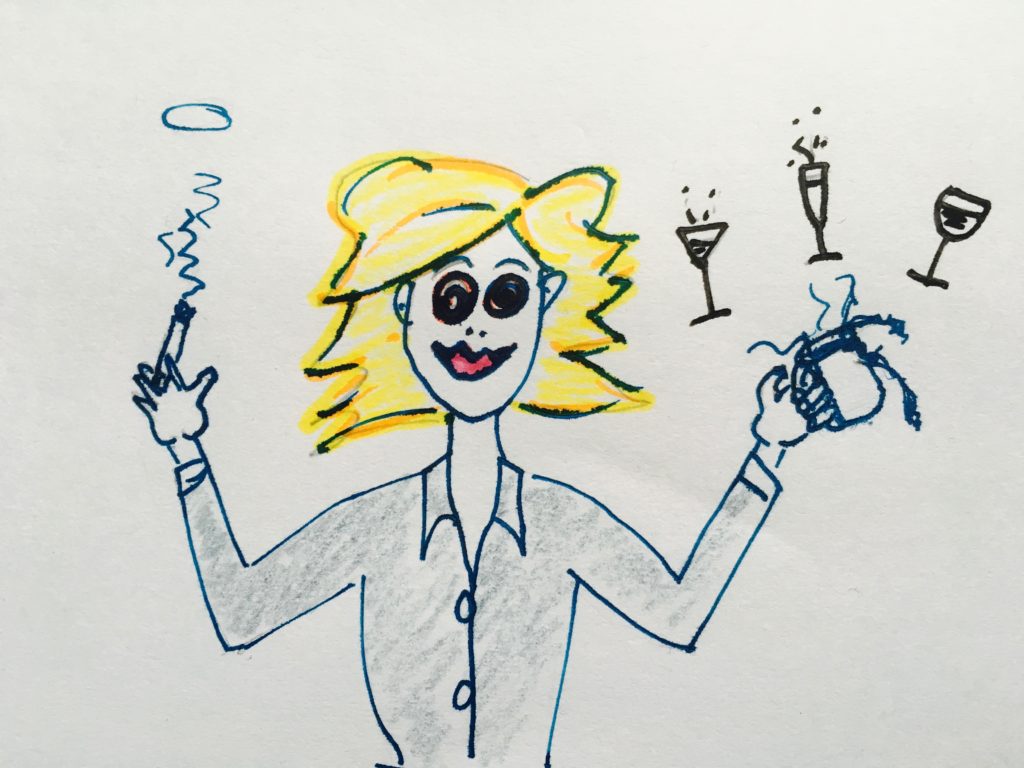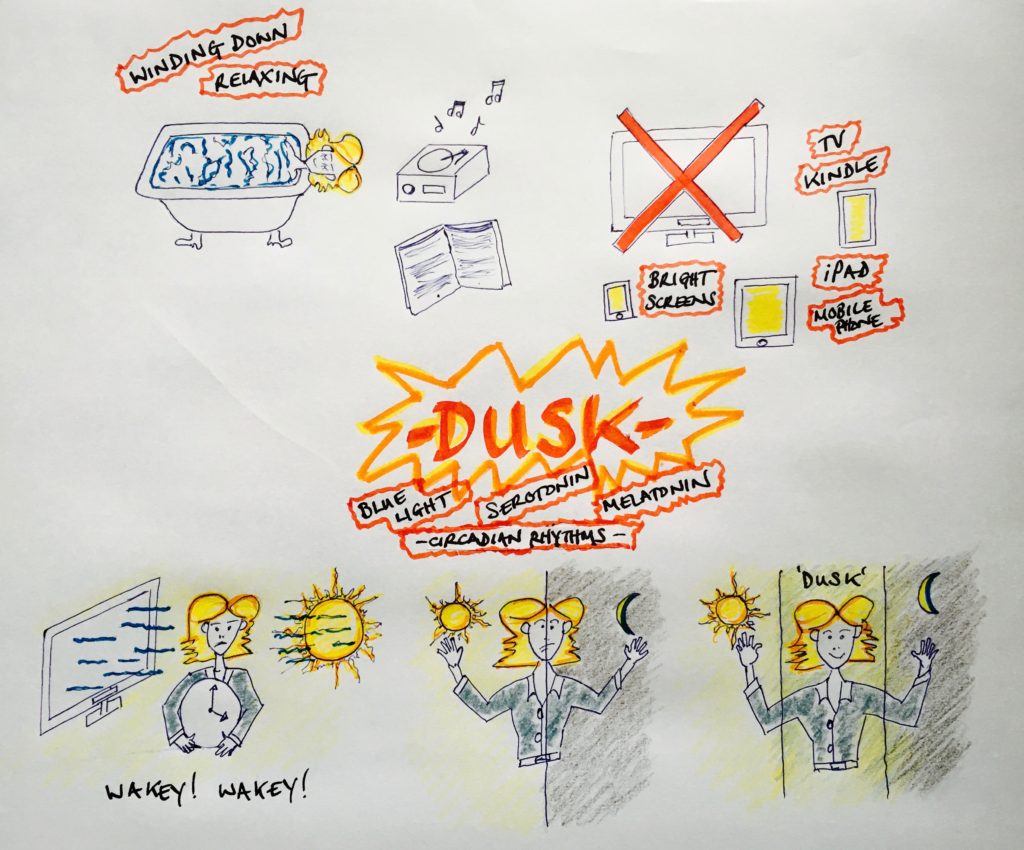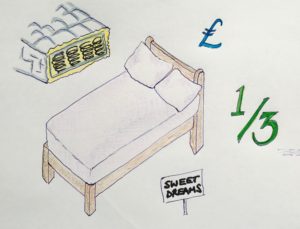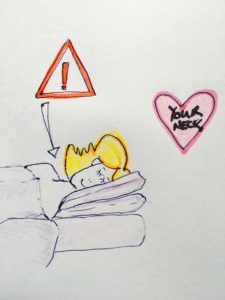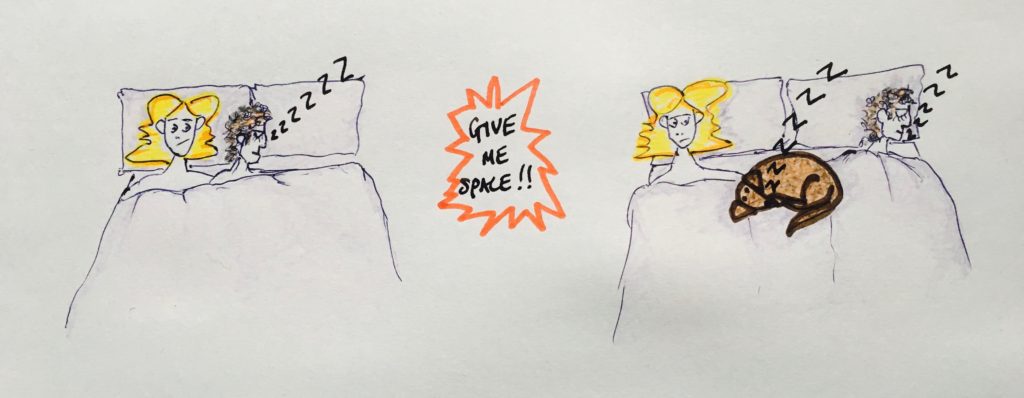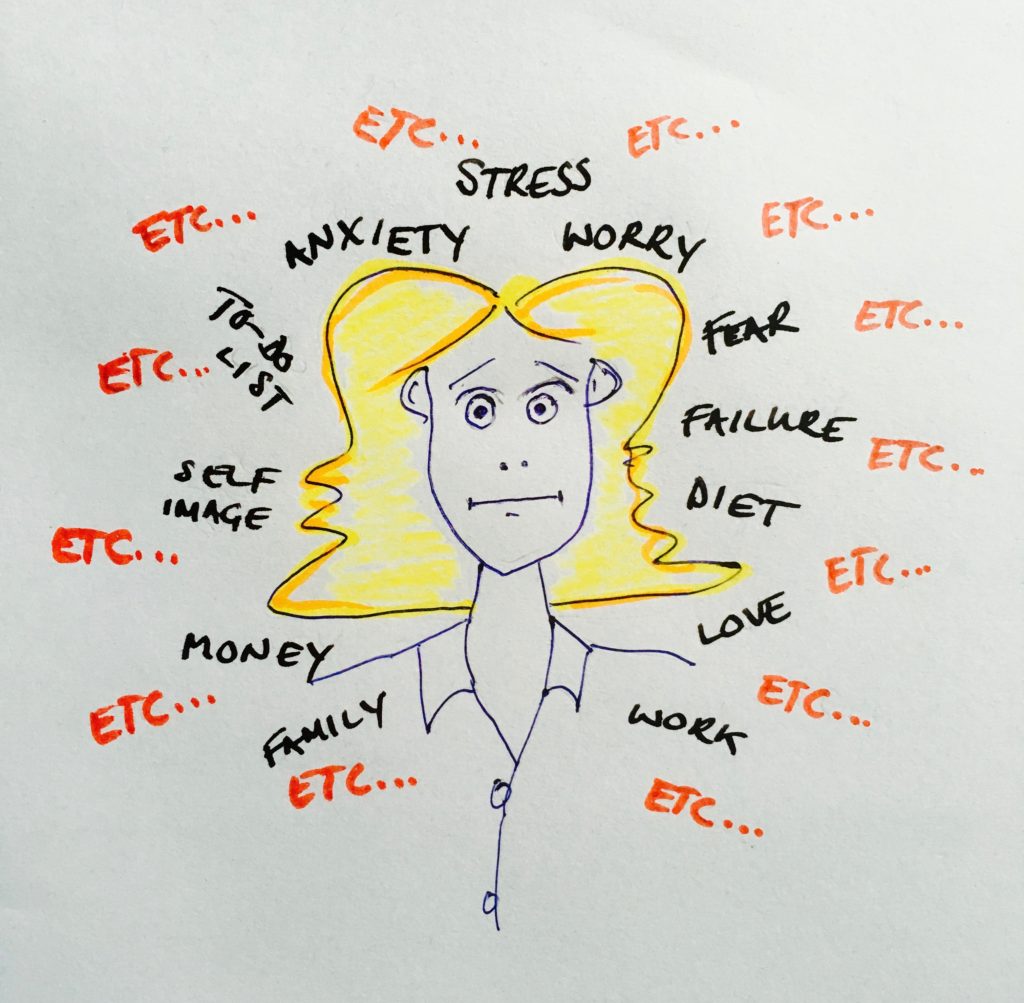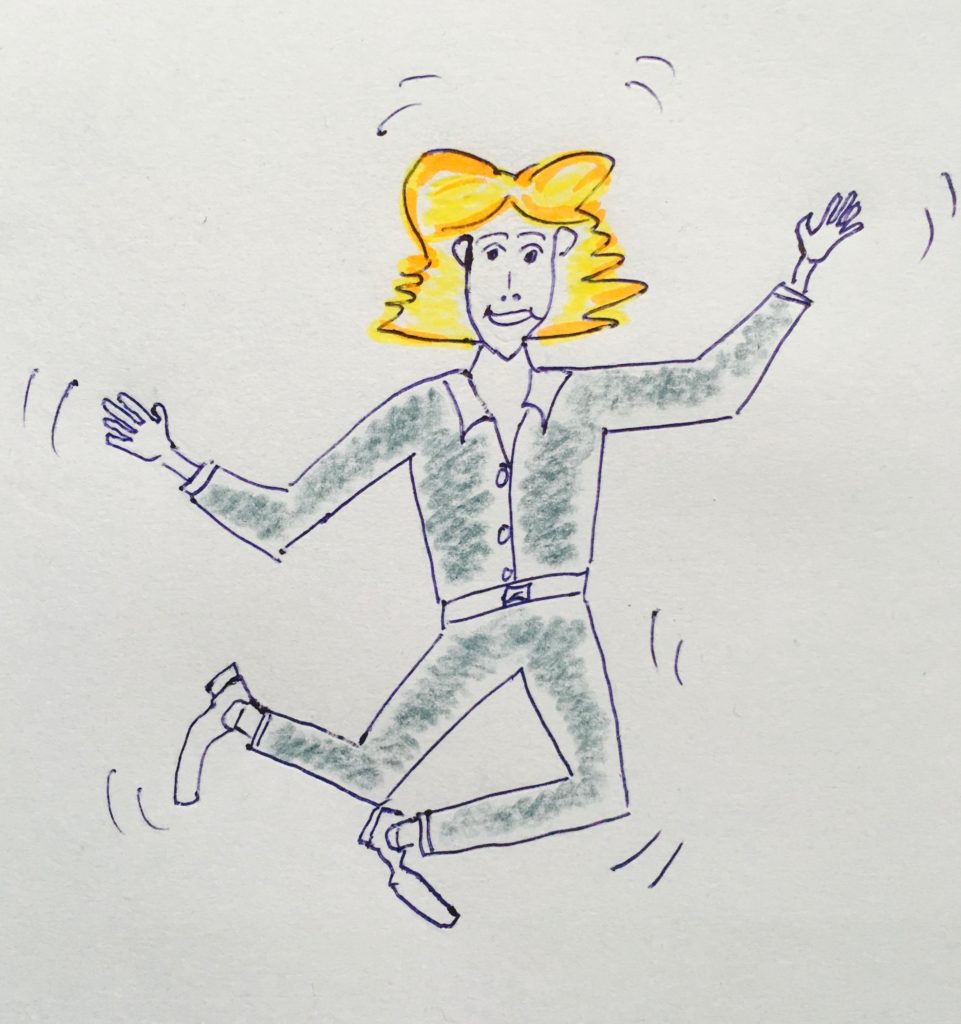This is a link to the VLOG – ‘Why sleep…?’ (it goes live very soon) but I’ve included the rough script here along with the drawings etc. that I use in the vlog. Enjoy…!
I’m talking about sleep because I have been reading recently how it can affect your health and bodily functions. Sleep is shown to be as important as diet and exercise, so, from a nutrition and anti-ageing perspective this is key.
Sleep is defined as ‘the natural periodic suspension of consciousnesses’ or ‘a condition of body and mind such as that which typically recurs for several hours every night, in which the nervous system is relatively inactive, the eyes closed, the postural muscles relaxed, and consciousness practically suspended’. Crikey…
It is a part of our daily routine but why we actually sleep is still largely a mystery. It is generally thought to be the time when the body repairs, rejuvenates and rebuilds all its major systems and it is obvious, to anyone who loses a nights sleep, that we wont last long without it!
The National Sleep Foundation (of America) recently published new guidelines, produced with a team of medical scientists, to try and pin down exactly how much sleep we need.
They defined the ideals, by age group, as follows:
Newborns (0 – 3 months): 14-17 hours per day
Infants (4 – 11 months): 12-15 hours per day
Toddlers (1 – 2 years): 11-14 hours per day
Pre-school children (3 – 5 years) 10-13 hours per day
School age children (6 -13 years) 9-11 hours per day
Teenagers (14 – 17 years) 8-10 hours per day
Younger adults (18 – 25 years) 7-9 hours per day
Adults (26 – 64): 7 – 9 hours per day
Older adults (65 years+) 7-8 hours per day
People claim to need more or less than others but the necessary cycles (i.e. the quality of the sleep) are the key factor rather than specific time-by-the-hour calculations. The ‘sleep scientists’ say that the amount of sleep you need is ‘just whatever it takes to mean you can function through the day’…! (All that education and expertyness and that’s the best they can do…?!?`)
Hell’s teeth don’t tell the teenagers I know – they’ll never get out of bed!
You may think that sleep is a simple case of go to bed, sleep and wake up but actually a complex chain of events and repeating patterns occurs.
Sleep is divided into two main groups. REM and NREM. (Rapid Eye Movement and Non Rapid Eye Movement). The NREM stages (light, true and deep sleep) proceed the REM stage (also when you dream) and the whole cycle takes about 90 minutes.
NREM is comprised of three distinct stages:
1st: where the eyes are closed but you are easily awoken – this usually lasts up to 10 minutes.
2nd: a light sleep as the body prepares for deep sleep by slowing your heart rate and lowering your body temperature.
3rd: deep sleep where the body does its repairing, rebuilding and strengthening – if you are awoken from this you feel distinctly disorientated!
Followed by REM:
REM always follows on directly from NREM and usually lasts a short while – anywhere from 10 minutes to 1 hour – depending on how many cycles of sleep you go through. The REM stage gets longer as the sleep cycles increase. This is when most of our muscles are paralysed, our heart rate increases, our breathing quickens and our mental activity is heightened – no wonder it is the stage when we dream with all that going on!
Studies are showing that people are sleeping increasingly either less, more erratically or, usually, both. Sleep loss in this way is linked to evident things that we’ve all experienced like poor mood, decreased brain function (learning and memory) and even our safety during the day as we attempt things like driving (as the motorway signs say, ‘tiredness kills’). However, it is also linked to key potential health issues:
- Metabolism. Lack of sleep is being linked to fluctuations in the hormones that control appetite (or rather fail to do so) and affects the way the body processes carbs which may lead to weight gain.
- Hypertension and inflammation. Sleep loss has be shown to increase blood pressure and activate stress hormones. When denied the sleep cycles it needs, the body goes into alert mode which begins a cycle of stress and tension which in turn make it harder to sleep. As the stress hormones in your body also cause inflammation they need to be regulated by activities such as sleep. Inflammation is a major contributor to the deterioration of our bodies, so sleep is a vital part of our healthy living process.
- Immune system. During sleep it is thought that the body regulates and mends any problems, focusing energy on this task while the body rests. Disrupting this has obvious consequences.
- Longer term sleep deprivation is being linked to major illnesses such as cancer, heart disease, diabetes and Alzheimer’s.
A word about serotonin, melatonin and sleep:
Serotonin controls heaps of things in our bodies such as our gastrointestinal, cardiovascular and immune systems, sexual function, mood and, notably, sleep cycles by powering the synthesis of melatonin in the pineal gland.
Light increases the production of serotonin and darkness encourages the synthesis of melatonin – the two then work in tandem and this is key to maintaining the sleep cycle. Anything that disrupts this pairing and the cycles they go through will result in poor sleep and the subsequent problems such as insomnia, anxiety, stress or depression. Sleep regulates all this and more.
Melatonin is not only a sleep regulator it is also an extremely potent antioxidant and sweeps through the body mopping up disease causing free radicals.
So, even though we don’t really know why we sleep we do see that we need to sleep. The expression beauty sleep is no cliché. It is the opportunity the body has to rejuvenate and it is the time when growth hormones are triggered and go about their rebuilding and beautifications! Very importantly, recent studies have shown that the brain uses sleep as its chance make decisions, cement ‘knowledge’, make sense of the day gone and to chuck out all the stuff it doesn’t really need to keep. Hoorah! Now we just need to make sure that we do sleep…
- The ‘sleep experts’ agree that a regular sleeping pattern is key. Going to bed at similar times and getting up at a set time, regardless of the day of the week or holidays, sets your body clock to a healthy sleeping attitude. However, if you’re not asleep in say 15 minutes then the advice is to get up and do something else and return only when you’re tired and feel like sleeping. Trying to ‘catch up’ on sleep doesn’t really work – it’s the consistency and quality that matters.
- Smoking and caffeinated products before sleep can disrupt a true nights sleep as their effects don’t leave your system for a considerable time. Alcohol may make you feel like sleeping but it too can prevent good sleep and, of course, like any liquids before bedtime, may mean an unscheduled trip to the toilet, again breaking your sleep cycles.
- Lulling your mind and body and preparing them for rest is a stage before sleep that most people skip, but it is very important. Winding down and relaxing before bed is a great way to tell your body to get ready for sleep. Relaxing things are more of the reading, having a bath kind of ilk rather than the watching TV kind. The bright screen (and this includes reading from a kindle/iPad) is not soothing to the eyes and brain at this time of the day and won’t necessarily have the desired effect. We need to recreate or reintroduce ‘dusk’ into our days! This isn’t as crazy as it sounds I promise! We are increasingly surrounded by short wave ‘blue light’ which our ‘body clock’ interprets as daylight. This blue light emits from TV’s, mobile phones, e-readers etc., so, when we try to go straight to sleep after using this type of equipment our bodies don’t have time to adjust. It’s straight from daytime to night time for our bodies – there’s been no dusk, no wind-down time. It’s like constantly skipping a time zone or two and subsequently subjecting yourself to low level, long term jet lag! Put a blue light filter on your devices at the very least, I’d say…?!
- Bear in mind that melatonin likes darkness so, as sleep whisperers will tell you, your bedroom should be cool and dark and as quiet as possible – but keep your extremities warm!
- The actual bed you lie on (and the pillows) are important factors too. You will have a preference to the firmness of your mattress but buy the best you can afford and don’t be shy about throwing yourself down on the beds in the shops to try them out…after all you will be spending a third of your life on it! Osteopaths will tell you that supporting the neck with good pillows is vital. As one of the most vulnerable parts of the body our necks need good loving and attention! I was told recently by the physio that a good gauge for the ‘amount’ of pillow you need is to stand with your shoulder against a wall and your head held straight. The distance between the wall and the side of your head is the pillow(s) you need.
- I know it’s nice to snuggle up with a loved one but ask any long time partnered people and they’ll agree that space in a bed is bliss…it is also better for you. So, make sure there’s enough room for you both and if you have pets or kids that muscle in on the bed space then I’m afraid it’s better to limit their access. I know a few dogs that certainly won’t agree!! Also, consider that we have often learnt terrible sleeping habits so some of these elements might not feel comfortable or be harder to implement at first.
- Stress and anxiety are major reasons why many people sleep badly. The mind whirring and worrying. Please consider tackling this. There are millions of books and websites etc. to guide and suggest ways to get down to the basics and begin to sort out the issues. Try some of them and give yourself a break! Taking time for yourself to explore and solve these things is the greatest gift you can give yourself.
- Exercise will help with stress too and generally is a brilliant way to ensure a good nights sleep, although beware of this too close to bed time because you might be too energised to sleep.
A word about napping. A well placed nap is generally accepted to be a good thing as long as you limit it to 10 – 30 minutes and have it mid-afternoon. Anything else is considered to be bad. If you suffer from insomnia then naps can interfere with your possibility of a nighttime sleep even further. BUT our new best friends the sleep scientists are now saying that being awake in the middle of the night for an hour or so was totally normal before the invention of artificial light! AND we are the only mammals that purposefully postpone sleep! Hmmm maybe nature knows best…?
So, it’s evident that we must not undervalue sleep as it is vital to us in so many ways. Of course, you can’t always control all the factors that could prevent you sleeping properly but adopting good habits to encourage good quality sleep has to be the best way forward. Just think of the health benefits as you slip into bed ready to sleep. Those positive and beauteous thoughts about your inner and outer health will be a perfect subject to hold in your mind as you drift into sleep…
Goodnight…
